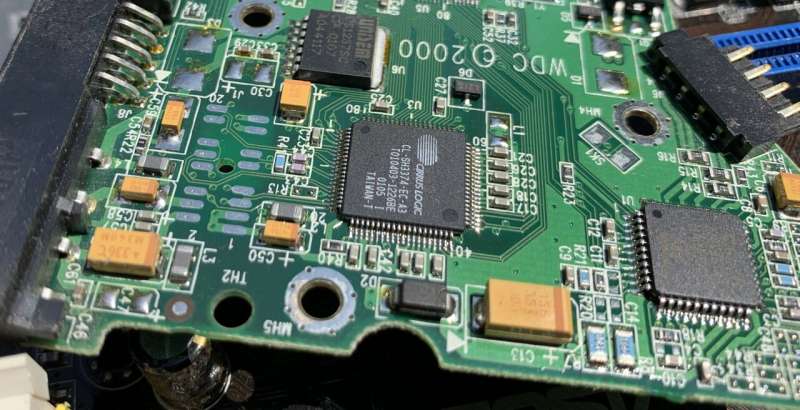Scientists at West Virginia University are using microwave technology to recover tantalum safely, efficiently, and with over 97% purity, which could transform e-waste into a domestic resource, cutting costs, reducing pollution, and strengthening national security.

Tantalum is a rare, heat-resistant metal crucial to modern electronics. It plays a key role in manufacturing capacitors—small devices that store and release energy efficiently. These capacitors are widely used in smartphones, laptops, aerospace systems, medical devices, and more. In fact, about 24% of global tantalum output is used in compact, high-performance electronic capacitors. With no reliable substitute currently available, tantalum is essential for our digital infrastructure.
Despite its high value (around $170/kg in 2024), tantalum is difficult to recycle. The metal is found in tiny amounts in electronic waste, making extraction through traditional methods costly, energy-intensive, and harmful to the environment. As a result, most tantalum ends up in landfills or is shipped overseas, where unsafe recycling methods often harm both people and ecosystems. The U.S. heavily depends on imports from nations like China, creating strategic vulnerabilities in case of supply disruptions.
Researchers at West Virginia University have developed a novel method utilising microwave technology to safely and efficiently recover tantalum. The process begins by shredding waste capacitors and then mixing the resulting powder with a carbon-based substance. When exposed to focused microwaves, the carbon rapidly heats up, triggering a chemical reaction known as carbothermal reduction. This converts tantalum compounds into tantalum carbide—a pure and recoverable form with over 97% purity. This method avoids the use of harmful chemicals, reduces energy consumption, and generates minimal waste.
This holds promise for scaling up. Pilot projects are underway, including recycling server boards and phone components. Funded by DARPA’s RPOD program, this initiative underscores the national importance of securing critical materials, such as tantalum. Microwave-based e-waste recycling offers several key benefits. Economically, it enables the recovery of high-value metals, creating opportunities for significant profits. Environmentally, the process generates less waste and pollution compared to traditional recycling methods, contributing to a cleaner and more sustainable approach. Strategically, reducing dependence on foreign sources for critical materials enhances national security and strengthens domestic supply chains.








